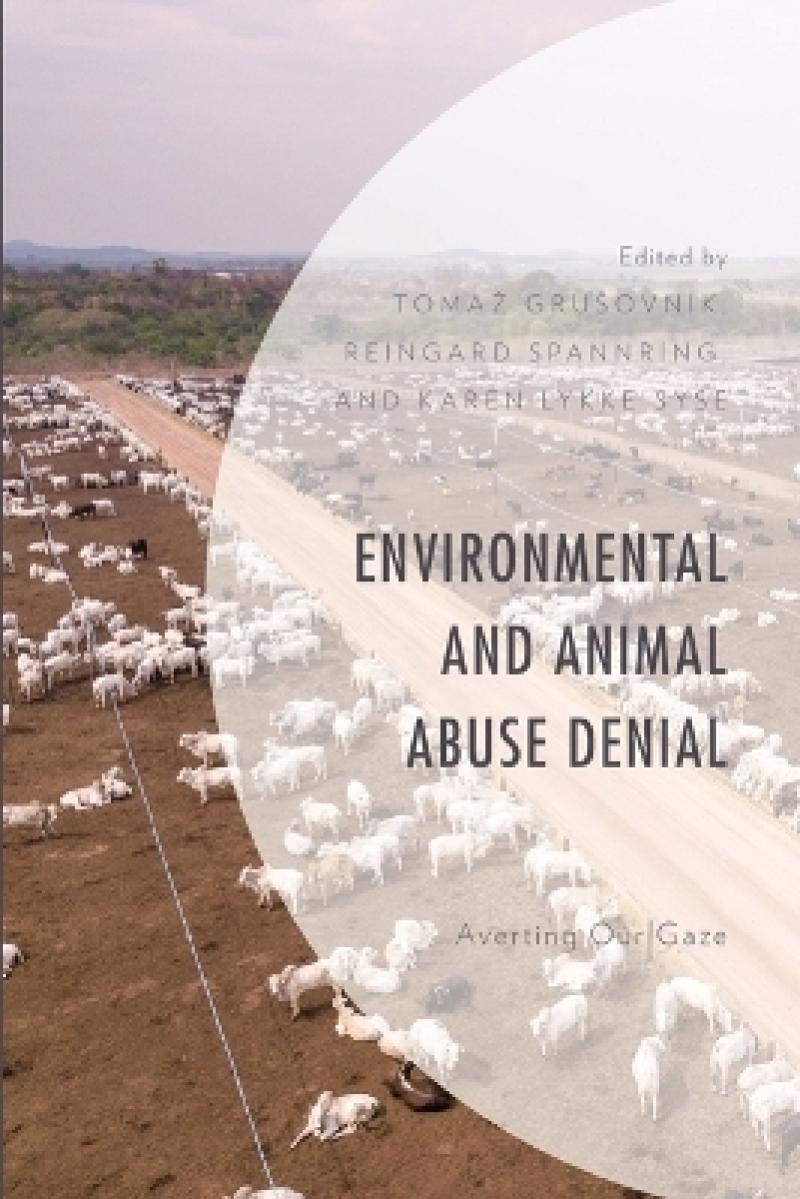The staggering rate of environmental pollution and animal abuse despite constant efforts to educate the public and raise awareness challenges the prevailing belief that the absence of serious action is a consequence of a poorly informed public. In recent decades alternative explanations of social and political inaction have emerged, including denialism. Challenging the information-deficit model, denialism proposes that people actively avoid unpleasant information that threatens their established worldviews, lifestyles, and identities. Environmental and Animal Abuse Denial: Averting Our Gaze analyzes how people avoid awareness of climate change, environmental pollution, animal abuse, and the animal industrial complex. The contributors examine the theory of denialism in regards to environmental pollution and animal abuse through a range of disciplines, including social psychology, sociology, anthropology, philosophy, cultural history and law.
Les mer
Introduction: Introducing Denialism in Environmental and Animal AbuseTomaž Grušovnik, Reingard Spannring and Karen Lykke SyseChapter 1: From Denial to Moral Disengagement: How Integrating Fundamental Insights from Psychology Can Help Us Better Understand Ongoing Inaction in the Light of an Exacerbating Climate CrisisSusanne Stoll-Kleemann Chapter 2: Denial as a Sense of Entitlement: Assessing the Role of CultureArne Johan VetlesenChapter 3: Skepticism and Animal Virtues: Denialism of Animal MoralityTomaž GrušovnikChapter 4: Human Uniqueness, Animal Minds, and Anthropodenial Adam SeeChapter 5: Suffering Animals: Creaturely Fellowship and its DenialCraig TaylorChapter 6: Brave New Salmon: From Enlightened Denial to Enlivened PracticesMartin Lee Mueller and Katja Maria HydleChapter 7: The Animal that Therefore was Removed from View: The Presentation of Meat in Norway, 1950-2020Karen Lykke Syse and Kristian BjørkdahlChapter 8: Political Economy of Denialism: Addressing the Case of Animal AgricultureJohn Sorenson and Atsuko MatsuokaChapter 9: Celebrate the Anthropocene? Why “Techno-Eco-Optimism” is a Strategy of Ultimate DenialHelen Kopnina, Joe Gray, Haydn Washington and John PiccoloChapter 10: The Horse in the Room: The Denial of Animal Subjectivity and Agency in Social Science Research on Human-Horse Relationships Reingard Spannring and José De Giorgio-SchoorlChapter 11: Still in the Shadow of Man? Judicial Denialism and Nonhuman AnimalsOpi Outhwaite
Les mer
Environmental and Animal Abuse Denial is a useful reference book for the topic of denial in relation to nonhuman nature that will hopefully inspire greater kindness toward and respect for planetary life.
Les mer
12/11/2020 - Psychology Today published an interview with the authors, titled “The Psychology of Denying Science, Common Sense, and Reality.” The interviewer calls the book “an outstanding collection of essays.” Link: https://www.psychologytoday.com/intl/blog/animal-emotions/202012/the-psychology-denying-science-common-sense-and-reality
Les mer
Produktdetaljer
ISBN
9781793610485
Publisert
2022-08-18
Utgiver
Vendor
Lexington Books
Vekt
395 gr
Høyde
227 mm
Bredde
151 mm
Dybde
15 mm
Aldersnivå
P, 06
Språk
Product language
Engelsk
Format
Product format
Heftet
Antall sider
242
Contributions by
Biographical note
Tomaž Grušovnik is associate professor of philosophy and senior research fellow at the Faculty of Education, University of Primorska, and at the Department of Philosophy, Faculty of Arts, University of Maribor, Slovenia.
Reingard Spannring is a sociologist at the Institute for Educational Science, University of Innsbruck in Austria.
Karen Lykke Syse is a cultural historian and is associate professor at Centre for Development and the Environment at the University of Oslo in Norway.
